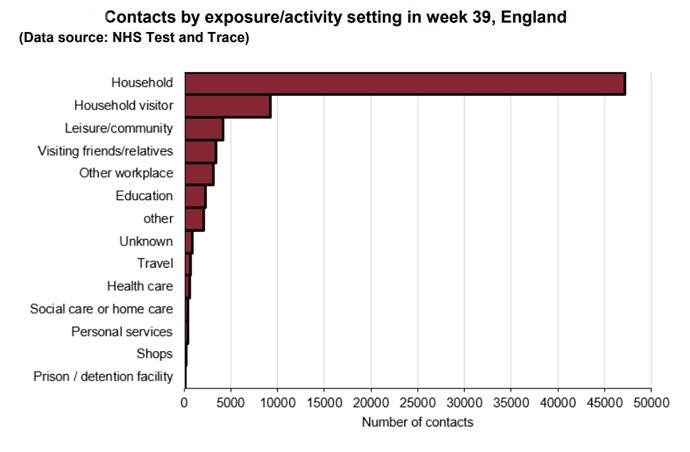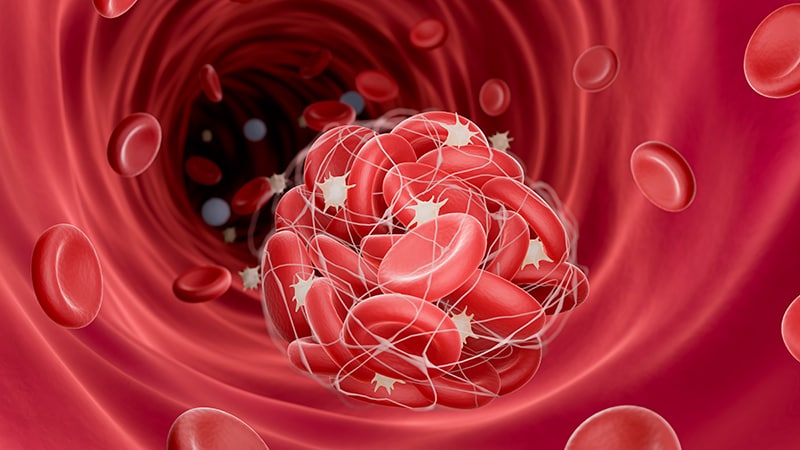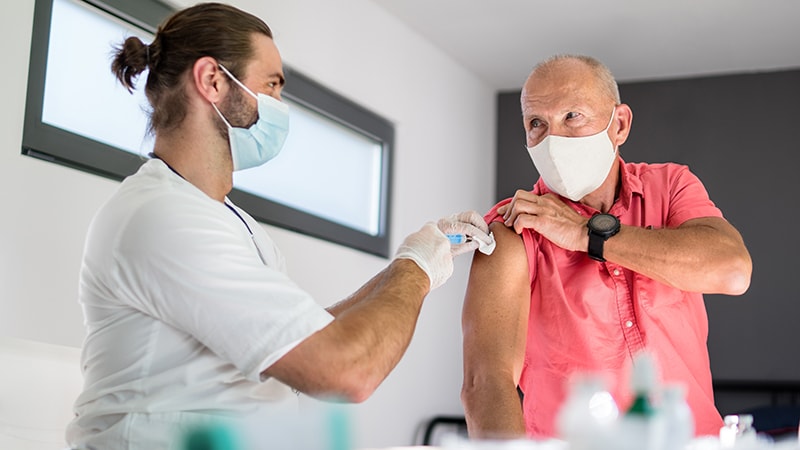These are the UK coronavirus stories you need to know about today.
Leaked Vaccination Plan
Doctors in the West Midlands have been asked to prepare for mass coronavirus vaccination as early as next month, the BBC reported, quoting from a leaked document.
Two vaccines are mentioned, codenamed Ambush and Triumph. The first needs to be stored at -70C, the second is believed to be the Oxford/AstraZeneca vaccine that can be stored at room temperature.
PM's Message to Donald Trump
Boris Johnson was the first world leader to be hospitalised with COVID-19.
Today he tweeted a message of support to Donald Trump after the President's positive test result: "My best wishes to President Trump and the First Lady. Hope they both have a speedy recovery from coronavirus."
Mr Trump is said to have "mild symptoms".
The President's doctor, Navy Cmdr Sean Conley, issued a statement: "The White House medical team and I will maintain a vigilant watch, and I appreciate the support provided by some of our country's greatest medical professionals and institutions."
The President’s profile would classify him as vulnerable. He is male, older (aged 74), and overweight (estimated Body Mass Index of 30.5) – three factors that are known to increase the risk of developing severe COVID-19.
However, there are also many factors that come into play, commented Naveed Sattar, professor of metabolic medicine, University of Glasgow, via the Science Media Centre: "Donald Trump has some risk factors such as being male, older (still strongest risk factor) and overweight but if he has no chronic conditions and is reasonably active (it seems likely so as he plays lots of golf and appears to walk quickly) then these may offset or attenuate his risks so that he may recover swiftly from the infection."
Loss of Smell 'Highly Reliable' COVID-19 Indicator
UCL and University College London Hospitals NHS Foundation Trust research has found loss of smell to be a 'highly reliable' indicator of COVID-19.
The study found 4 out of 5 people with sudden loss of smell or taste tested positive for COVID-19 antibodies, and is published in PLOS Medicine.
Five hundred and ninety patients were recruited via text messages from primary care centres in London asking about loss of taste/smell in April and May.
Lead author, Professor Rachel Batterham, said in a statement: "While people in the UK who experience sudden onset loss of smell or taste are advised to self-isolate and seek a test, at a global level few countries recognise this symptom as a COVID-19 indicator: most focus on fever and respiratory symptoms.
"Our findings show that loss of smell and taste is a highly reliable indicator that someone is likely to have COVID-19 and if we are to reduce the spread of this pandemic, it should now be considered by governments globally as a criterion for self-isolation, testing, and contact tracing."
R
The UK's R number has risen to 1.3-1.6 from 1.2-1.5 last week.
The growth rate is +5% to +9% per day.
England's R number is 1.2-1.6 and the growth rate +4 to +8.
Scotland's R number is 1.3-1.7
Wales' R number is 1.0-1.4.
Northern Ireland's R number wasn't available at the time of publication.
In today's daily data another 6968 UK positive tests were reported and 66 deaths.
There are 2376 COVID-19 patients in hospital and 323 ventilator beds are in use.
ONS Infection Survey
The Office for National Statistics (ONS) weekly COVID-19 Infection Survey estimates 1 in 500 people in England had coronavirus between 18 and 24 September, equating to around 116,600 people.
ONS estimates there were 1.54 new COVID-19 infections for every 10,000 people per day, or around 8400 new cases per day.
Katherine Kent from ONS commented: "Our estimates continue to show a rise in COVID-19 infections across England, especially in teenagers and young adults, based on our analysis of almost three hundred thousand swabs from the last 6 weeks. Infections are highest in the North West and North East.
"While the evidence suggests that the increase in new cases may be levelling off after a sharp rise in August and September, it is too early to be certain at this stage."
Commenting on the latest weekly Public Health England data, Paul Johnstone, National Director for Place and Regions, said:, said: "There are some small signs that the recent measures introduced may be having a positive effect, however it is far too early to say."
Test and Trace data for England show infections remain most common within households.

Oxford to Study Adalimumab for COVID-19
Oxford University is to study adalimumab (Humira, AbbVie) to see if the anti-tumour necrosis factor (anti-TNF) drug is an effective treatment for COVID-19 patients.
The AVID-CC trial will enroll up to 750 patients from community care settings across Britain.
Local Lockdowns
In the latest local lockdown measures in Northern Ireland, pubs, cafes, restaurants, and hotels in Derry and Strabane can only provide takeaway and outdoor services.
More than a third of the UK's population is now under some additional coronavirus restrictions.
Wales is allowing people who live alone to form social bubbles with another household. First Minister Mark Drakeford said: "Creating temporary bubbles for single people and single parents in local lockdown areas will make sure they have the emotional support they need during this time."
Meanwhile, Poland and Turkey are among destinations being removed from the UK's air corridor list meaning people entering the UK from those countries should self-isolate for 2 weeks.
Rule Breaking
SNP MP Margaret Ferrier felt unwell enough to have a coronavirus test, but took a train to London to speak in the Commons. After hearing her test was positive she took the train back to Scotland.
The Speaker of the Commons Sir Lindsay Hoyle called her behaviour "reckless".
She's been suspended by her party.
Social Trends
The latest social impacts data from the Office for National Statistics found levels of leaving homes to socialise between 24 and 27 September dropped to 20% from 30% the week before in Great Britain. This was after Boris Johnson's TV address on 22 September and may also reflect local lockdown measures.
The proportion of adults worried about the effect of COVID-19 on their lives rose to 74%, the highest since the end of May.
In households with students going to university with members worried about them returning, 67% were most worried about the quality of education they would receive due to COVID-19 changes.
Meanwhile, smoking declined, but harmful drinking behaviour increased during COVID-19 lockdown in the UK. Additionally, psychological distress increased substantially during lockdown, Univadis from Medscape reported.
Researchers conducted longitudinal analyses of data from 9748 individuals taking part in the UK Household Longitudinal Study. Outcomes assessed were psychological distress, loneliness, cigarette smoking, e-cigarette use, and alcohol consumption.
The findings showed that there was a significant increase in the proportion of individuals drinking four or more times a week (relative risk [RR], 1.4; 95% CI, 1.3-1.5) and of those binge drinking (RR, 1.5; 95% CI, 1.3-1.7) during lockdown. Cigarette smoking declined (RR, 0.9; 95% CI, 0.8-1.0) during lockdown and so did e-cigarette use (RR, 0.7; 95% CI, 0.5-0.9).
The prevalence of psychological distress increased from 19.4% in 2017-2019 to 30.6% in April 2020. Women, young adults, individuals from an Asian background, and those who were degree educated were the most afflicted.
Writing in The Journal of Epidemiology and Community Health, the authors said: "Poor mental health is an important predictor of future mortality and several physical health conditions. Given this, further monitoring of the determinants of health, as well as health outcomes, are required."
See more global coronavirus updates in Medscape’s Coronavirus Resource Centre.





